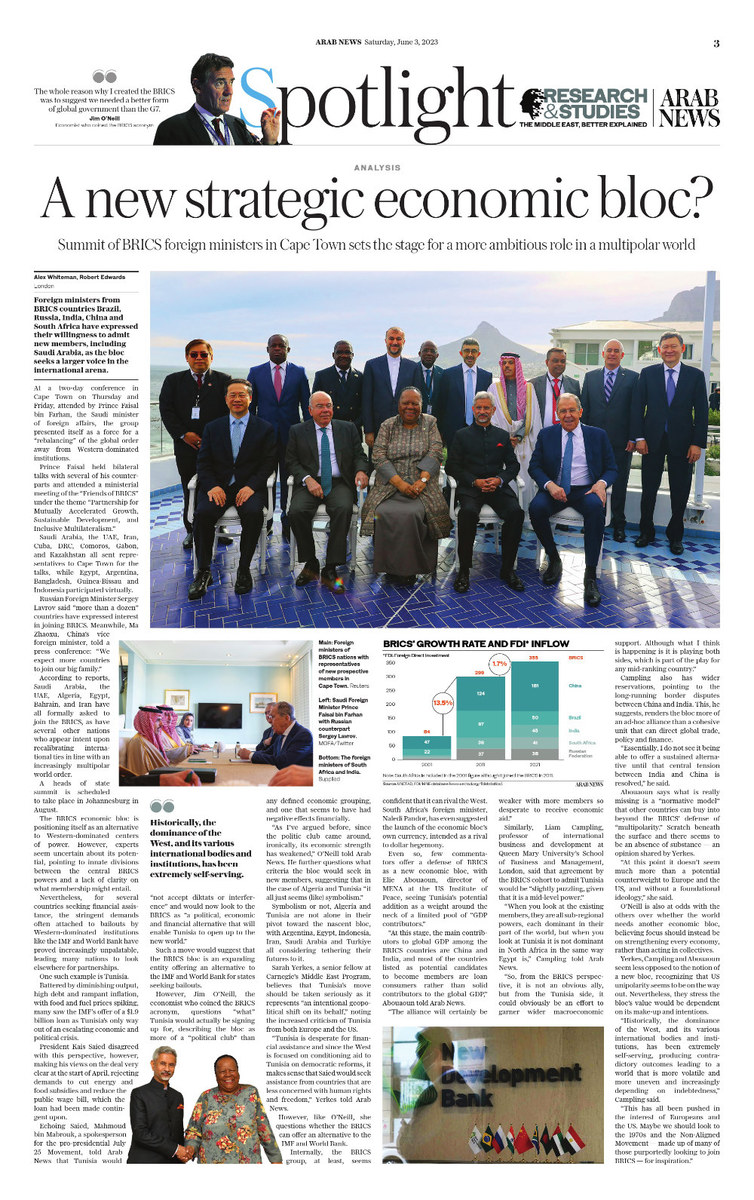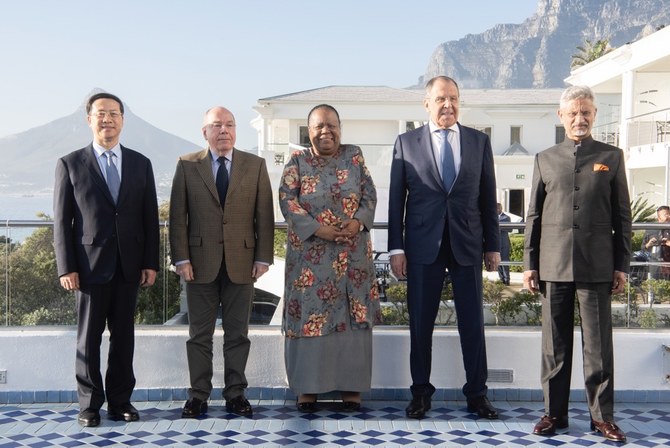LONDON: Foreign ministers from BRICS countries Brazil, Russia, India, China and South Africa have expressed their willingness to admit new members, including Saudi Arabia, as the bloc seeks a larger voice in the international arena.
At a two-day conference in Cape Town on Thursday and Friday, attended by Prince Faisal bin Farhan, the Saudi minister of foreign affairs, the group presented itself as a force for a “rebalancing” of the global order away from Western-dominated institutions.
Prince Faisal held bilateral talks with several of his counterparts and attended a ministerial meeting of the “Friends of BRICS” under the theme “Partnership for Mutually Accelerated Growth, Sustainable Development, and Inclusive Multilateralism.”
He also held talks with Hossein Amir-Abdollahian, Iran’s foreign minister, to examine steps “to implement the agreement between the two countries signed in Beijing, including intensifying bilateral work to ensure international peace and security,” according to a statement from the Saudi delegation.
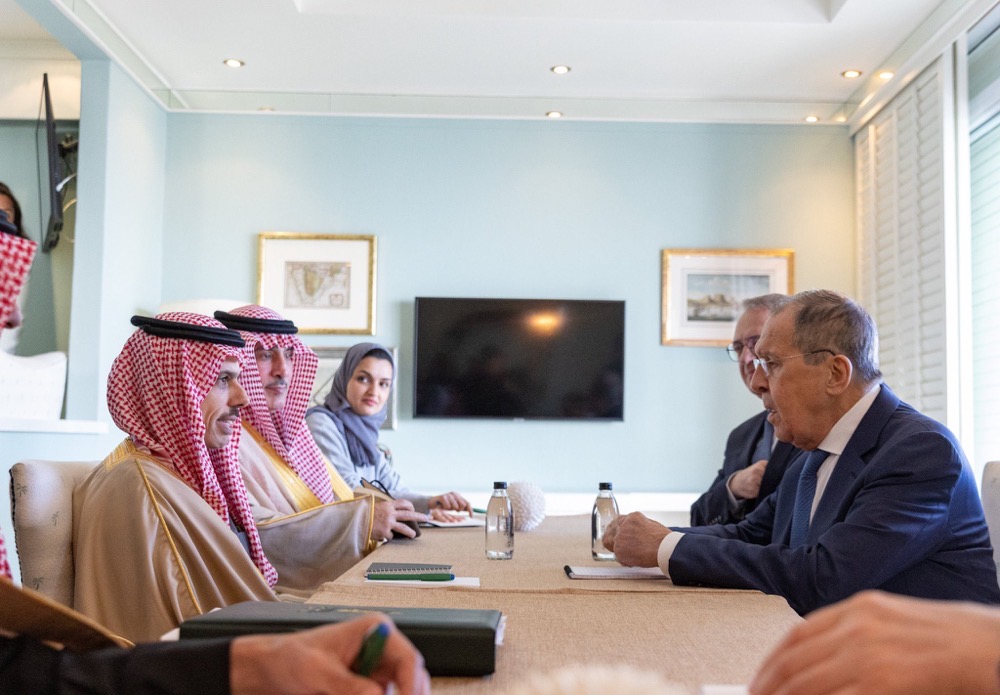
Saudi Foreign Minister Prince Faisal bin Farhan with Russian counterpart Sergey Lavrov. (MOFA/Twitter)
Saudi Arabia, the UAE, Iran, Cuba, DRC, Comoros, Gabon, and Kazakhstan all sent representatives to Cape Town for the talks, while Egypt, Argentina, Bangladesh, Guinea-Bissau and Indonesia participated virtually.
Russian Foreign Minister Sergei Lavrov said “more than a dozen” countries have expressed interest in joining BRICS. Meanwhile, Ma Zhaoxu, China’s vice foreign minister, told a press conference: “We expect more countries to join our big family.”
According to reports, Saudi Arabia, the UAE, Algeria, Egypt, Bahrain, and Iran have all formally asked to join the BRICS, as have several other nations who appear intent upon recalibrating international ties in line with an increasingly multipolar world order.
According to the Financial Times, Saudi Arabia is also in talks with the New Development Bank, the Shanghai-based lender better known as the “BRICS bank,” to admit the Kingdom as its ninth member.
A heads of state summit is scheduled to take place in Johannesburg in August.
The BRICS economic bloc is positioning itself as an alternative to Western-dominated centers of power. However, experts seem uncertain about its potential, pointing to innate divisions between the central BRICS powers and a lack of clarity on what membership might entail.
Nevertheless, for several countries seeking financial assistance, the stringent demands often attached to bailouts by Western-dominated institutions like the IMF and World Bank have proved increasingly unpalatable, leading many nations to look elsewhere for partnerships.
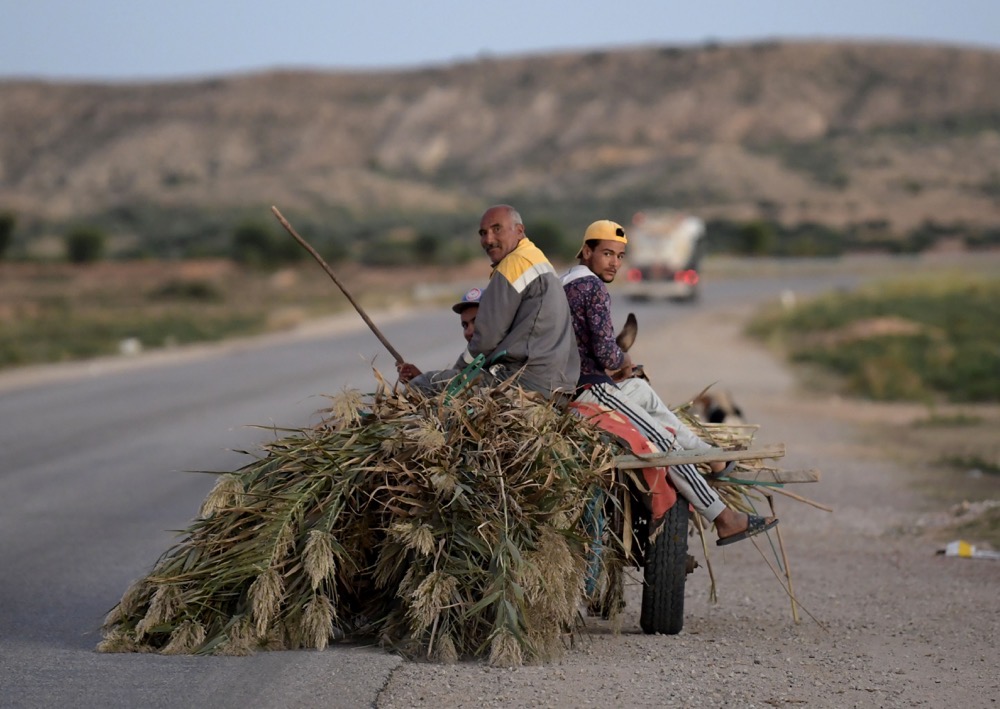
A Tunisian man and his children return home on their cart in the central Tunisian city of Sidi Bouzid. (AFP)
One such example is Tunisia.
Battered by diminishing output, high debt and rampant inflation, with food and fuel prices spiking, many saw the IMF’s offer of a $1.9 billion loan as Tunisia’s only way out of an escalating economic and political crisis.
President Kais Saied disagreed with this perspective, however, making his views on the deal very clear at the start of April, rejecting demands to cut energy and food subsidies and reduce the public wage bill, which the loan had been made contingent upon.
“I will not hear diktats,” Saied said, noting the deadly riots that ensued in 1983 after bread prices were raised, telling Tunisians they instead had to “count on themselves.”
Others close to Saied seem to think that he has different plans to stop the country’s economic rot.
Echoing Saied, Mahmoud bin Mabrouk, a spokesperson for the pro-presidential July 25 Movement, told Arab News that Tunisia would “not accept diktats or interference” and would now look to the BRICS as “a political, economic and financial alternative that will enable Tunisia to open up to the new world.”
Should bin Mabrouk’s claim hold weight, Tunisia would become the latest North African country to gravitate toward the bloc after Algeria applied to join late last year.
Such a move would suggest that the BRICS bloc is an expanding entity offering an alternative to the IMF and World Bank for states seeking bailouts.
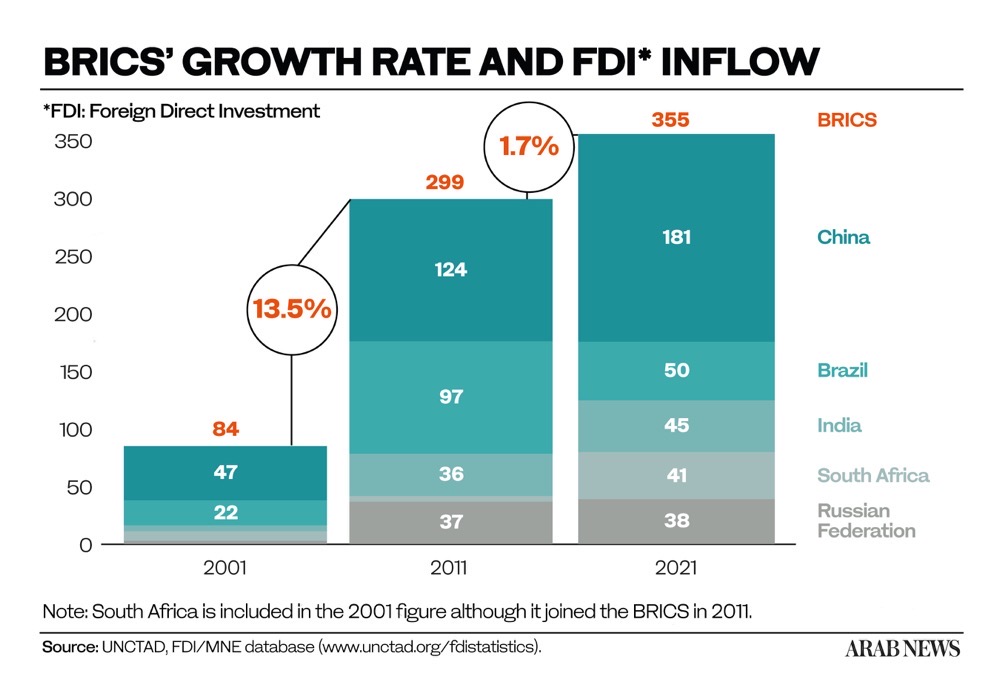
However, Jim O’Neill, the economist who coined the BRICS acronym, questions “what” Tunisia would actually be signing up for, describing the bloc as more of a “political club” than any defined economic grouping, and one that seems to have had negative effects financially.
“As I’ve argued before, since the politic club came around, ironically, its economic strength has weakened,” O’Neill told Arab News. He further questions what criteria the bloc would seek in new members, suggesting that in the case of Algeria and Tunisia “it all just seems (like) symbolism.”
Symbolism or not, Algeria and Tunisia are not alone in their pivot toward the nascent bloc, with Argentina, Egypt, Indonesia, Iran, Saudi Arabia and Turkiye all considering tethering their futures to it.
Sarah Yerkes, a senior fellow at Carnegie’s Middle East Program, believes that Tunisia’s move should be taken seriously as it represents “an intentional geopolitical shift on its behalf,” noting the increased criticism of Tunisia from both Europe and the US.
“Tunisia is desperate for financial assistance and since the West is focused on conditioning aid to Tunisia on democratic reforms, it makes sense that Saied would seek assistance from countries that are less concerned with human rights and freedom,” Yerkes told Arab News.
However, like O’Neill, she questions whether the BRICS can offer an alternative to the IMF and World Bank, pointing to the bloc’s weak record when it comes to “assisting other countries and helping them achieve real, sustained economic prosperity.”
Internally, the BRICS group, at least, seems confident that it can rival the West. And, with the group set to meet in Johannesburg this August, South Africa’s foreign minister Naledi Pandor has reportedly suggested the launch of the economic bloc’s own currency, intended as a rival to dollar hegemony, would be firmly on the discussion table.
Even so, few commentators offer a defense of BRICS as a new economic bloc, with Elie Abouaoun, director of MENA at the US Institute of Peace, seeing Tunisia’s addition as a weight around the neck of a limited pool of “GDP contributors.”
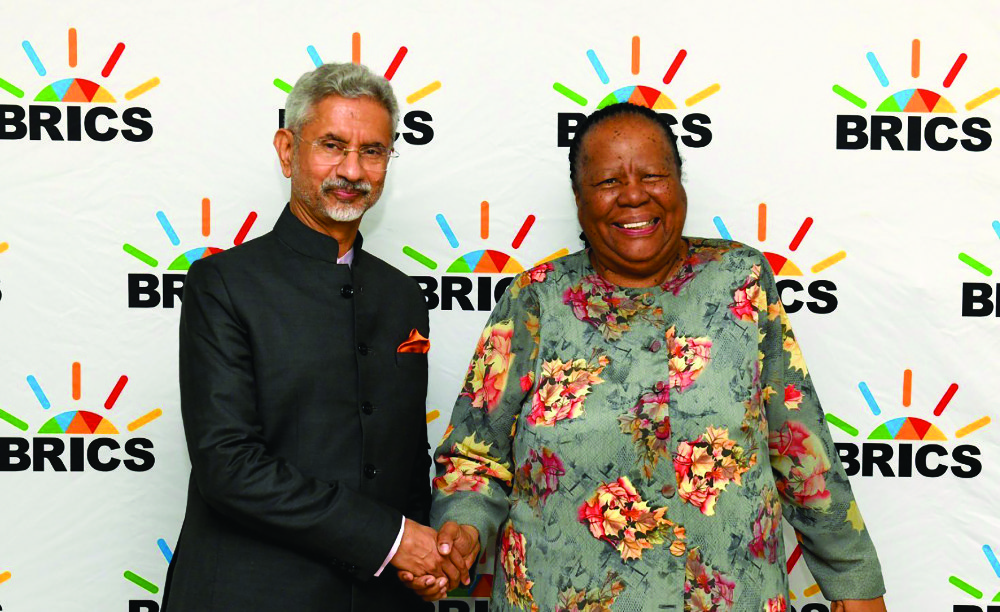
The foreign ministers of South Africa and India. (Supplied)
“At this stage, the main contributors to global GDP among the BRICS countries are China and India, and most of the countries listed as potential candidates to become members are loan consumers rather than solid contributors to the global GDP,” Abouaoun told Arab News.
“With seven or eight new consumer countries integrating into the alliance, I see challenges for the largest BRICS member states and less, if any, financial benefit to the new ones. The alliance will certainly be weaker with more members so desperate to receive economic aid.”
Similarly, Liam Campling, professor of international business and development at Queen Mary University’s School of Business and Management, London, said that agreement by the BRICS cohort to admit Tunisia would be “slightly puzzling, given that it is a mid-level power.”
“When you look at the existing members, they are all sub-regional powers, each dominant in their part of the world, but when you look at Tunisia it is not dominant in North Africa in the same way Egypt is,” Campling told Arab News.
“So, from the BRICS perspective, it is not an obvious ally, but from the Tunisia side, it could obviously be an effort to garner wider macroeconomic support. Although what I think is happening is it is playing both sides, which is part of the play for any mid-ranking country.”
Campling’s skepticism stems from his assertion that while Tunisia may have fallen foul of the US, with increased political acrimony between the two, it is still very much economically “in bed” with the Europeans, adding “it’s not going to jeopardize its EU connections for this.”
And like the others, Campling has wider reservations about the BRICS project, pointing to what he terms the “central tension at the heart of it,” namely the long-running border disputes between China and India.
This, he suggests, renders the bloc more of an ad-hoc alliance than a cohesive unit that can direct global trade, policy and finance in a manner akin to that of the IMF or World Bank, and thus he questions the assertion that BRICS could become an alternative economic bloc.
“Essentially, I do not see it being able to offer a sustained alternative until that central tension between India and China is resolved, and I do not see that being resolved, which means there is nothing really holding it together, leaving little space for a more sustained role,” he said.
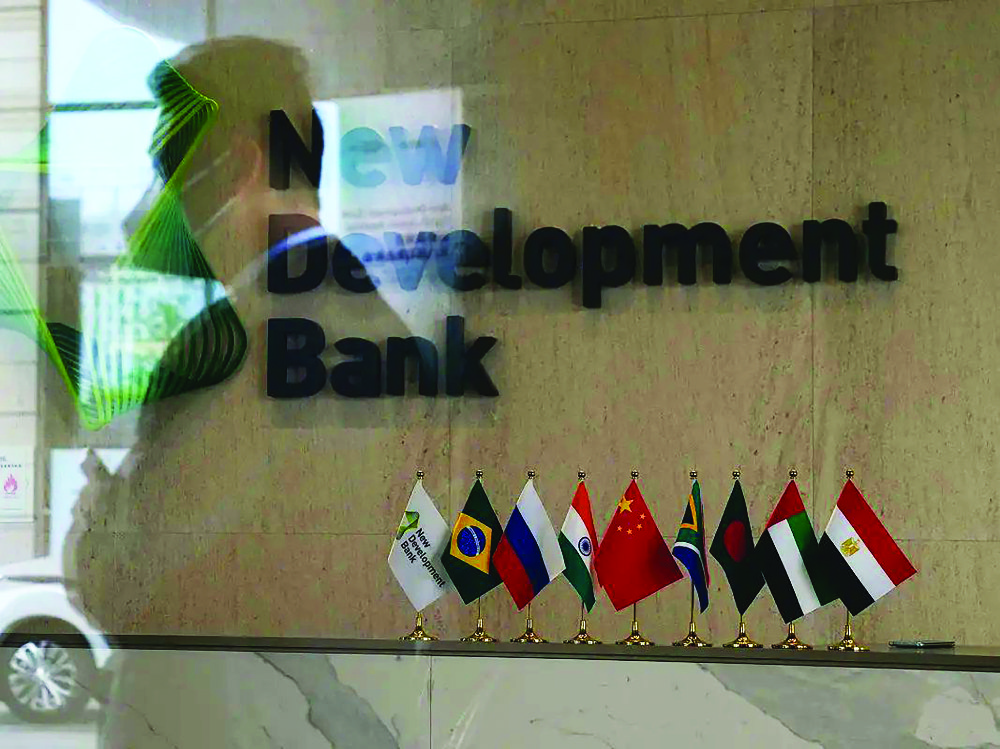
Abouaoun says what is really missing is a “normative model” that other countries can buy into beyond the BRICS bloc’s defense of “multipolarity.” Scratch beneath the surface and there seems to be an absence of substance — an opinion shared by Yerkes.
“At this point it doesn’t seem much more than a potential counterweight to Europe and the US, and without a foundational ideology, particularly with members with vastly different economic philosophies, it doesn’t seem likely that it would be a strong competitor,” she said.
Consensus on BRICS’ prospects notwithstanding, O’Neill is at odds with the others when it comes to the question of whether the world needs another economic bloc, believing focus should instead be on strengthening every economy, rather than acting in collectives.
Yerkes, Campling and Abouaoun seem less opposed to the notion of a new bloc, recognizing that US unipolarity seems to be on the way out. Nevertheless, they stress that the bloc’s value would be dependent on its make-up and its intentions.
Indeed, with the likes of Saudi Arabia potentially among its ranks, the BRICS could attain new levels of financial and diplomatic clout, transforming the international arena.
“Historically, the dominance of the West, and its various international bodies and institutions, has been extremely self-serving, producing contradictory outcomes leading to a world that is more volatile and more uneven and increasingly depending on indebtedness,” Campling said.
“This has all been pushed in the interest of Europeans and the US. Maybe we should look to the 1970s and the Non-Aligned Movement — made up of many of those purportedly looking to join BRICS — for inspiration.”
